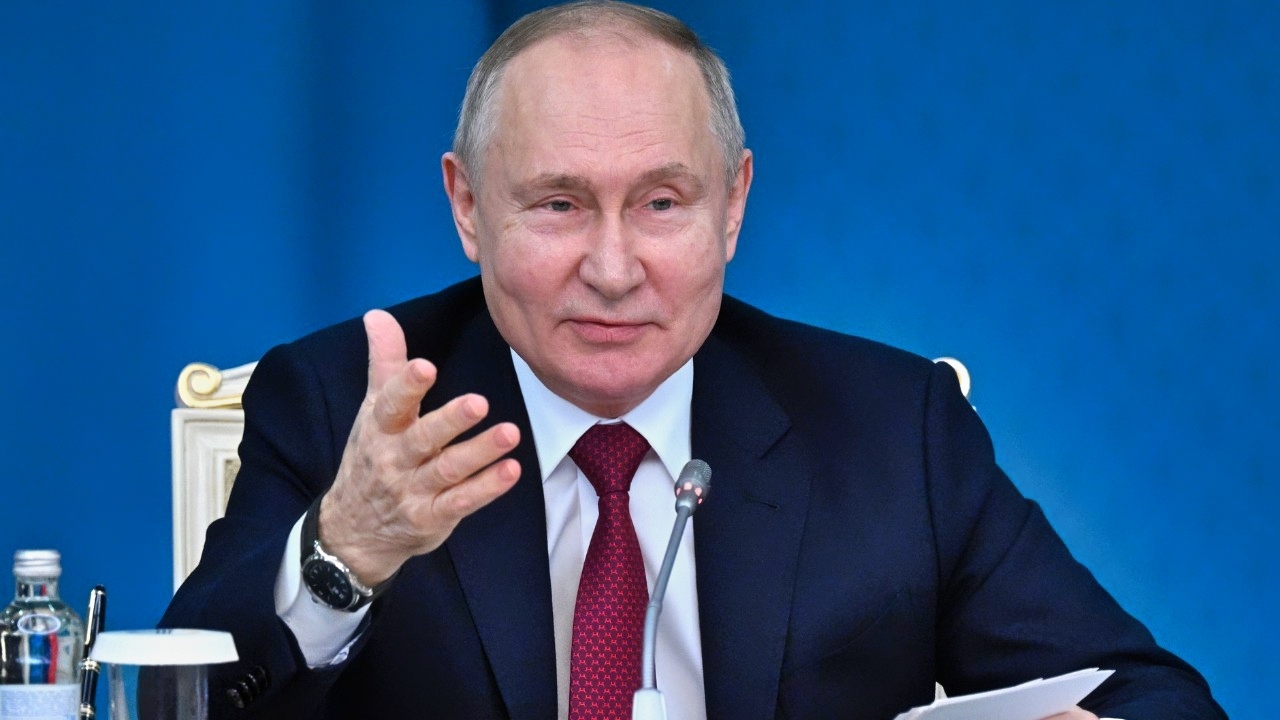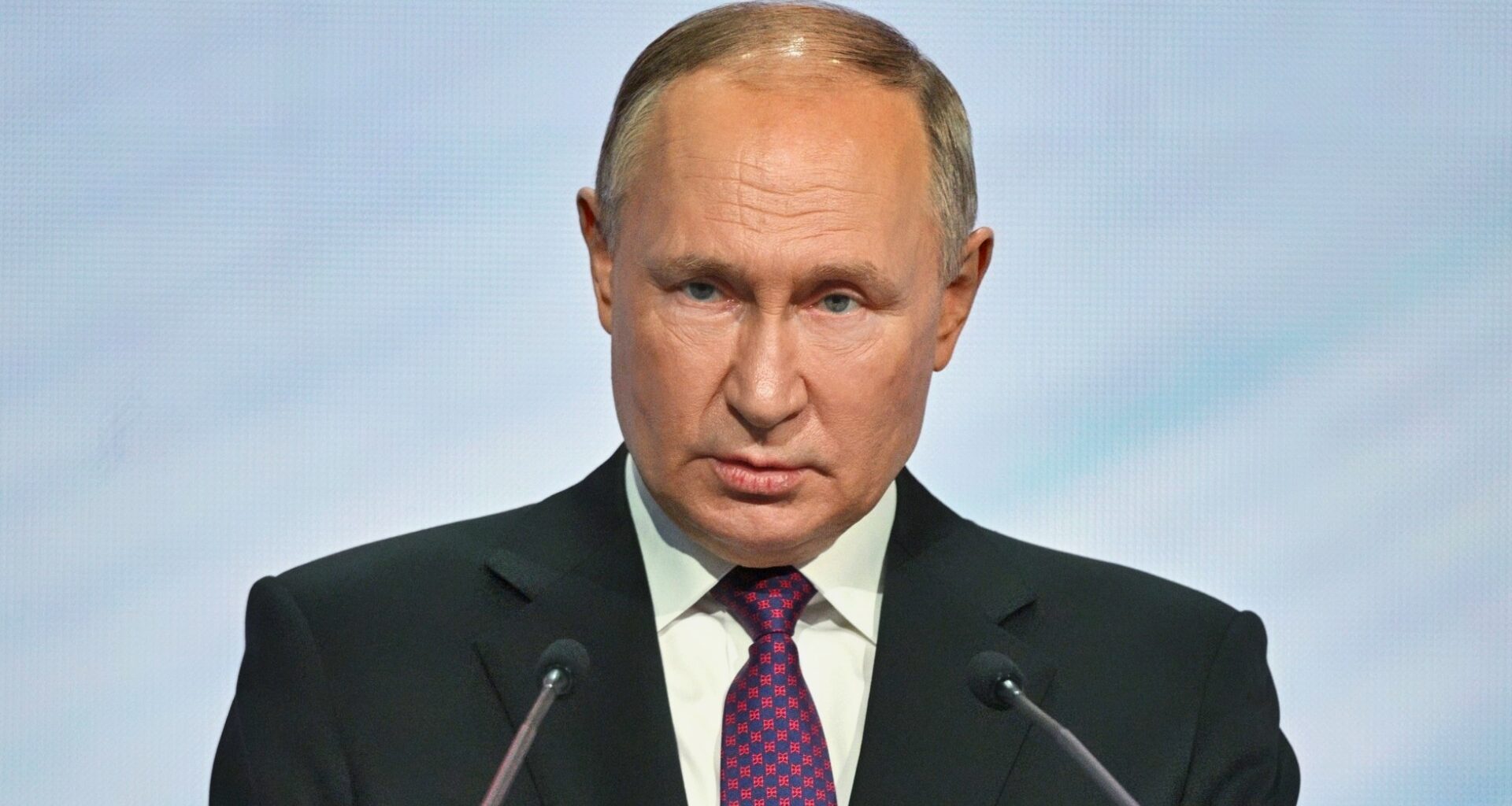WARSAW, POLAND – In the Summer of 2020, the Ukraine war could have been avoided.

Putin in 2023. Image Credit: Creative Commons.
It would have cost peanuts compared to what has been spent since then, and will be paid in the future, standing up against Russia.
This is the message of the Belarus opposition leader, a former presidential candidate and popular political commentator, Sergei Tikhanouvskiy.
During last week’s Warsaw Security Forum (ESF), he spoke at length about the issue of how his country’s destiny is intertwined with the future of Europe and the war in Ukraine, and how more than five years ag,o Belarus could have played a role in preventing it.
Tikhanouvskiy was arrested prior to the August 2020 presidential election in Belarus due to his ability to secure the support of the population in many small cities in Belarus, making him the first candidate to do so.
He and other candidates were imprisoned before the election by the country’s strongman president, Aleksandr Lukashenko, once called the “last dictator in Europe.”
Lukashenko then declared himself the victor in the August 2020 election, which was widely regarded as fraudulent.
Tikhanouvsky was famously released from prison in June of this year after more than five years of incarceration, reportedly at the request of Lukashenko to impress US President Donald Trump.
His release followed the visit to Minsk of the US Presidential Special Envoy, Lt. Gen. Keith Kellogg.
“I think in 2020 in Minsk [the capital of Belarus] there was a chance for Europe to avoid this war in Ukraine altogether,” explained Tilkhanouvsky. But when [Russian President] Putin supported the dictator, Europe did nothing, they just sympathized with Belarus”.
To demonstrate just the level of resources Moscow is willing to commit to overthrowing governments in neighboring nations, he asked the audience, “[D]o you know how much Russia spent [trying to rig] yesterdays’ elections in Moldova? The estimates are that it was about US $300 million.”
He then asked, “[D]o you know how much Poland has spent to build a fortress-like border wall with Belarus? Somewhere around $500 million, he stated. “Do you know how much it will cost EU collectively to re-arm itself over the next four years? Probably about $1 trillion,” said Tikhanouvskiy.
“And now ask me how much it would have cost to change the government in Belarus back in 2020,” he continued. “I think it would have cost no more than $50 million.”
Why The West Failed to Stop the War
The question is why, at that time, no one had a clear vision that Lukashenko was vulnerable enough to be toppled.
The streets of Minsk and other Belarus cities were full of hundreds of thousands of protestors.
The “last dictator’s” position appeared to be untenable.
The Belarus Question
One of the leaders of the Belarus opposition-in-exile, Vadim Prokopiev, spoke with National Security Journal following his friend Tikhanouvskiy’s speech.
He echoed his message of “had Europe acted to install a neutral government – one that would have never permitted Russian troops to be based on their territory and mass for an invasion of Ukraine – the war never would have happened in the first place.”
“There could have been no invasion of Ukraine without Lukashenko allowing his country to be used as a giant launchpad for the Russian army to enter Ukraine from the north out of Belarus. Just think about the millions who would still be alive, and the billions of Euros spent on this war that could have been stopped almost two years before it started,” he concluded.
Why Was No Action Taken?
So, why was nothing ever done, said Tikhanouvsky?
It is pretty simple, according to him and others who spoke to NSJ:
“Europe has never had a clear strategy for Belarus,” he said in his presentation.
The situation was ripe for a takeover, explained Tikhanouvskiy.
“The administrative apparatus of the state and all the powerful figures in the governing elite circles were ready to move over and stand on the side of the people [in the streets]. But, when Putin actively stepped forward to support Lukashenko, they all took a step back.”
“Europe did not do anything. They did not become a player in this situation. They only expressed their concern and condolences,” he recalled. “And this is the lesson we must learn.”
“The next time there is a spark in the Belarus revolutionary movement, you [Europe] must take an active role. It should not be only Putin who steps in to act,” said Tikhanouvsky.
“This failure to act was a perfect example of ‘what not to do’ in such a situation and we are all still paying for it and countless lives have also been lost,” said Prokopiev this week.
The Path to the Future
Tikhanouvsky also stated that despite the failure of both Europe and the US in 2020 to take advantage of the opportunity to change the regime in Belarus, the “eventual creation of a free Belarus is inescapable – just as the eventual change of the political regime in Moscow is. The only question now is when. The sad reality is that all indicators now are that this will not happen quickly.”
“This is not because the Belarusian people do not desire this change, it is because of the geographic disposition of the nation we cannot act without the support of our allies. So, what do we have with our allies?”
“The Americans believe they can separate Moscow from Beijing. So long as this illusion holds strong all they can do is help with the [Belarus] political prisoners. Europe, sorry for my subjectivity, cannot take any actions. It cannot realistically help Ukraine, so what can we say about Belarus? So, what everyone can do now is to help is securing the release of the 1300 political prisoners currently dying in prison.”
“Those languishing in Lukashenko’s…prisons deserve a chance to get out while they are still alive,” said Prokopiev. “It is the least the West could do to atone for their lack of acting to change the regime back in 2020.”
About the Author: Reuben F. Johnson
Reuben F. Johnson has thirty-six years of experience analyzing and reporting on foreign weapons systems, defense technologies, and international arms export policy. Johnson is the Director of Research at the Casimir Pulaski Foundation. He is also a survivor of the Russian invasion of Ukraine in February 2022. He worked for years in the American defense industry as a foreign technology analyst and later as a consultant for the U.S. Department of Defense, the Departments of the Navy and Air Force, and the governments of the United Kingdom and Australia. In 2022-2023, he won two awards in a row for his defense reporting. He holds a bachelor’s degree from DePauw University and a master’s degree from Miami University in Ohio, specializing in Soviet and Russian studies. He lives in Warsaw.
More Miliary
The U.S. Navy’s Constellation-Class Crisis Boiled Down to 4 Words
The F-20 Tigershark Light Fighter Boiled Down to 4 Words
China Claims New J-35 Stealth Fighter Is ‘Invisible’
The 5 Greatest U.S. Navy Aircraft Carriers Of All Time
The Navy’s New Ford-Class Aircraft Carriers Can’t Hide All The Problems Anymore
